
Thanks to the rapid rate of change in video games, both my job and the industry I cover are practically unrecognisable. This is largely what keeps me interested in video games, this pace of transformation: there is always something new to cover, and we're always trying to find new ways to talk about it.
When I started writing about video games professionally in 2005, the Japanese games industry was still near the top of its game. People were genuinely talking about whether PC gaming might be dead. The Xbox 360 had yet to launch and the Wii was still under wraps. Independent game development wasn't really a thing; or, well, it was a thing, but only on PC, or if it was funded by a big publisher. Games (and gamers) were still desperately struggling for cultural legitimacy. Smartphones did not exist. YouTube was not a thing (seriously, it launched properly in November 2005).
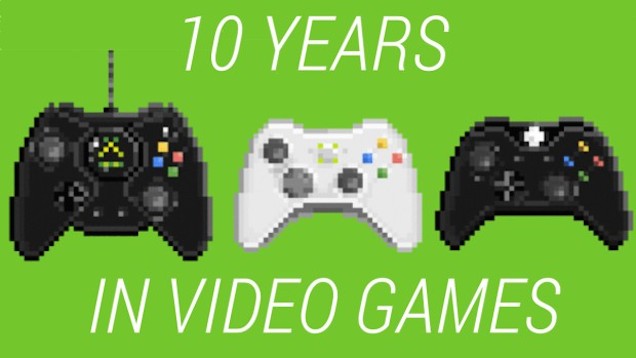
There have been hundreds of significant changes, big and small, technological and cultural. The 10 things below, for me, are the most important.
The games media
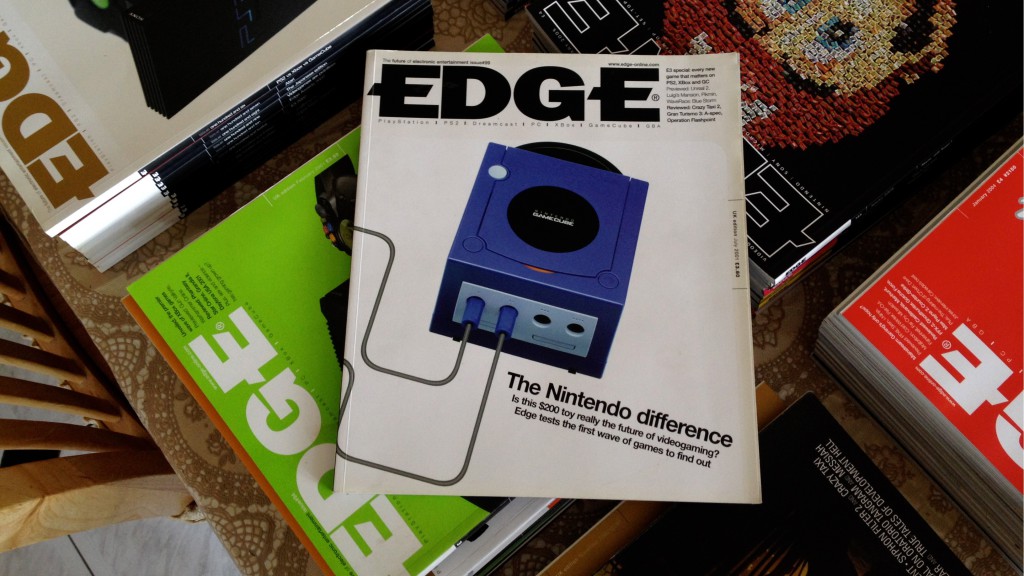
EDGE, the world's most respected games magazine - and one of the few that remain.
In August 2005, I got a job as a staff writer on a print magazine in the UK. One of the first things I was asked to do was write a preview of the game Okami, which I had neither seen nor played. "Just read Gamespot's preview and work from that," my editor told me. (I'm happy to say the editorial standards at Kotaku UK are rather different.)
This is no indictment on that particular magazine. That's just kind of how things were back then; there were no gameplay videos, few demos, and in lieu of actually getting invited to see a game at a studio, usually all you had to go on was some screenshots and a press release. The magazines I used to read as a kid were bursting with personality, weird in-jokes and bizarre features, and I now know that's because they didn't actually have that much to write about.
I've written before about how games media has changed, especially in the past five years. When I started out, games journalism was reviews, news and previews and that was about it. Anyone doing anything other than these things was considered a fringe operator. Now, though, the games media is no longer just journalism; it's also entertainment, criticism, comedy, video, essayism and all sorts of other far more interesting things than the reviews and previews that used to fill the pages of the magazine I worked on.
The explosion of the games media has brought its challenges. It's harder and harder for outlets to differentiate themselves from the vast numbers of other websites (or YouTubers, or streamers) doing essentially the same thing. Thanks to YouTube and social media, publishers are now inclined to go directly to "consumers" with their information and screenshots and game trailers - they no longer have to go through the games press. When I started out, we were the gatekeepers to information about games. Now we have to be something more interesting than that.
I've personally really enjoyed this challenge. Where before, people would dismiss you as a maverick if you ever strayed outside the confines of previews and reviews, now it's essential. In Kotaku UK, I've had the opportunity to experiment with what the games media can be in the modern age. It's been a lot of fun.
The Japanese games industry
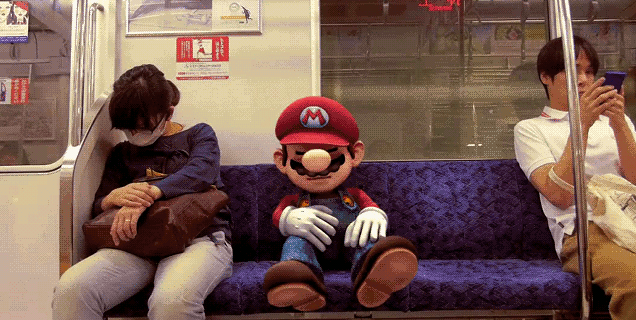
Some of the things I loved most about video games in 2005 have disappeared, now. In the midst of the PlayStation 2 era, there were loads of weird low-budget Japanese console games appearing every month. I have a long-time friend whose specialism was finding the strangest and most interesting of these oddities; I was never as good at it as he was, but I found some of my favourite games of all time by digging through Japanese releases, occasionally discovering something like Gitaroo Man or Demon's Souls.
I also found a whole lot of enjoyable strangeness, like musical robot RPG Steambot Chronicles (brilliantly titled Bumpy Trot in Japanese), or Chulip, a game where you had to work up to kissing the girl of your dreams from kissing gimps in sewers, and a huge range of bonkers and energetic rhythm-action games. I always loved the quirkier side of Japanese development, but now the Japanese games industry has stratified: the great majority of the talent is either working in mobile gaming, or on huge games like Final Fantasy or Monster Hunter. The same has happened across the games industry, of course: the wonderful world of the so-called "B-game" has all but disappeared, leaving room only for very big or very small projects. But it's the Japanese B-games that I miss the most.
I moved to Japan in 2008, just in time to catch the tail end of arcade culture there. I've been back every year since and now most of the game centres I used to frequent are gone, leaving only the biggest or the most specialised. Gaming culture is still very much alive and well in Japan, with the nation's gaming heritage proudly on display in the form of NES, SNES, PlayStation and Dreamcast games still on sale in most game stores you might step into, but it's not what it used to be. The Japanese games industry is actually worth more now that it was back then thanks to the explosion of mobile, but it's easy to acknowledge that many of the big names in Japanese publishing (like Konami) are shadows of their former selves.
Games are no longer in thrall to cinema
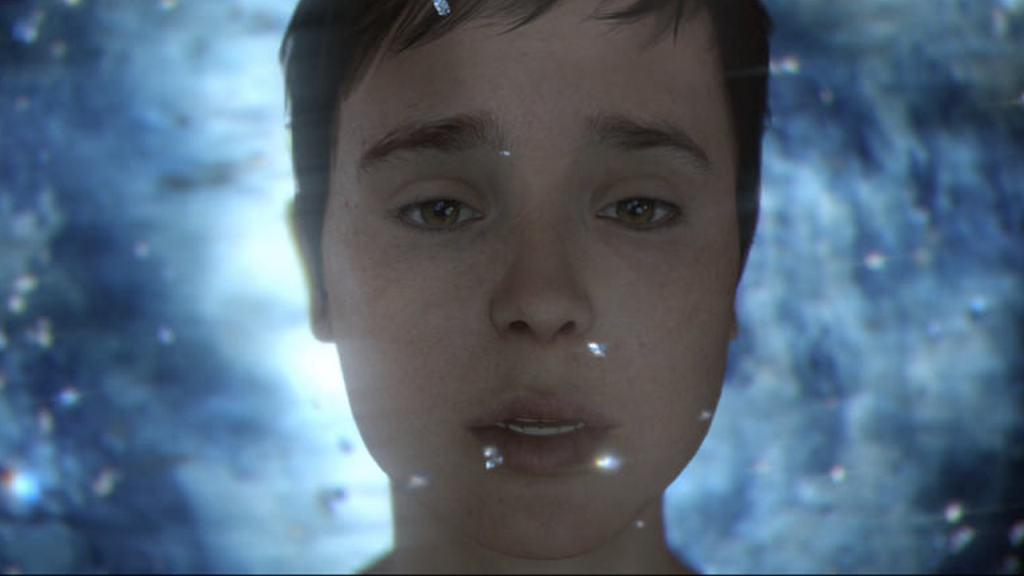
For a large part of the '00s, games were obsessed with trying to be films, desperate to ape the action and emotional impact of cinema through the non-interactive techniques of cinema: cut-scenes, dialogue, visual realism. Even as the games industry started generating more money than Hollywood, games themselves couldn't seem to leave it behind. Hollywood script-writers and voice actors were hired for everything. Linear narratives involving big explosions became the norm. Frequently it felt like nothing you did had any actual impact on what you were playing; you were just being led by the hand through pre-determined events.
There's still some of this going around, but it feels to me like games have reclaimed themselves lately. They no longer feel the need to apologise to anybody for being games, or apply labels to themselves like "interactive cinematic experiences". I could name you 30 well-written games from the past 5 years or so that were not trying to be films. Games have developed (or reclaimed) their own techniques for thrilling, edifying, or provoking an emotional response in players.
It took a while for big business gaming to realise the games could be more commercially and creatively successful by being themselves than they ever could by pretending to be films. It's been proven by the enormous and unexpected success of the Souls series, Spelunky, Minecraft and countless others. Cinematic gaming still exists in the form of things like Uncharted and (still) the Call of Duty series, but it's no longer dominating theme of the games industry.
A lot of this, I think, is a result of liberating developers from the technological arms race. Instead of desperately striving for more and more impressive photorealistic graphics, like they were in the mid-'00s, developers are experimenting more. Games have emerged from an identity crisis.
The opposite of this is David Cage's games, which are clearly desperate to be films and as a result now feel rather outdated. Beyond: Two Souls, especially, feels like an anachronism.
Games actually tell good stories now
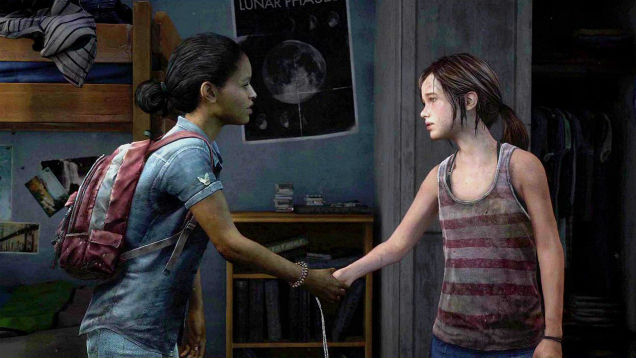
One of the first big games I ever reviewed was Shadow of the Colossus, which at the time had storytelling ambitions far beyond what anything else was doing. Since then we've seen plenty more games that are just as impressive, and most of them don't rely on cut-scenes. To name a few off the top of my head: Telltale's The Walking Dead. Journey. The Stanley Parable. The Last of Us. Deus Ex: Human Revolution. The Witcher series. Gone Home. Papers, Please.
There used to be a lot of restrictions placed upon games, both by wider culture and by publishers. Games can't deal with emotions. They had to be action-packed. You had to be shooting something. Games that prioritise story don't sell. Games are inherently frivolous. Even as gamers, we had low expectations for sophistication in these areas.
Now those expectations are higher and, in truth, some developers are struggling with that. You can't get away with B-movie writing, boring characters and gender stereotyping any more. But these higher expectations are pushing people to create stories in our medium that are so much more interesting than what I grew up playing.
The resurgence of indie development and the waning power of publishers

Around 2009-10 was not the best time for games: I was worried that the financial crisis might eventually reduce gaming to Angry Birds, Farmville and Call of Duty, with nothing in between. But instead, the resurgence of independent development since 2010 has completely changed video games; or, sometimes, it's returned them to what they used to be back in the '80s and early '90s, when people commonly made games in their bedrooms or garages.
A vast component of this change is the waning power of publishers. In the PS2 era, if a publisher did not fund your game, it did not get made, certainly not on a console. Now, in the PS4 era, there are a great many independent games on the PSN storefront, hardly any of them publisher funded. More recently, Kickstarter has given players themselves the power to decide whether or not a game gets made. That's come with its own problems, but it has transformed the market for smaller games.
I have always been a console gamer, so this change has been especially apparent to me. It was Xbox Live Arcade that first brought downloadable, smaller games to a console audience and its early indie mega-successes like Braid, Limbo and Super Meat Boy set the scene for a whole new kind of game on console. Losing focus on Xbox Live Arcade was one of Microsoft's biggest mistakes during the Xbox 360 era. It could have dominated this market.
The resurgence of independent development has brought with it a creative energy that was sorely lacking in the games of the late '00s. It's made video games so much more interesting, especially on console. Meanwhile, publishers now have so much less power than they used to. The most successful ones are adapting to this new reality.
The people who play games
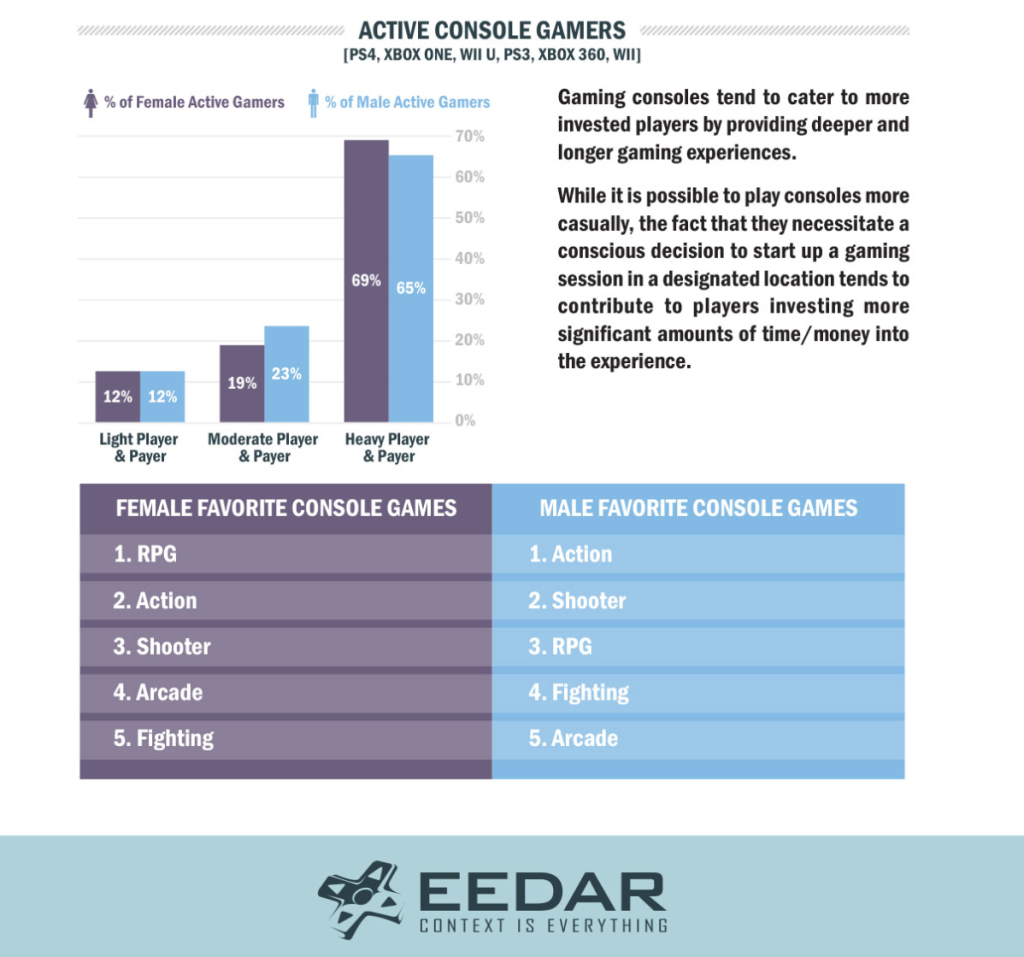
There was a headline stat a little while back that women now make up pretty much half of game players worldwide. People rushed to counter this, defending the mantle of "gamer" from this horde of "casual" interlopers. But the data continually bears out that gaming's audience is diversifying, whatever people might say to counter it. 'Oh, but women are all playing on smartphones and Facebook!' Then how come the preferred genres for men and women players are practically identical, and 40 per cent of the audience that self-identifies as "core" gamers are women or girls? We must accept the data. We should be celebrating the data.
I could not be happier about this. I went to an all-girls school, and playing games was "not for girls" back then. Never mind the fact that most of my school friends played games with me; they would never have called themselves gamers. There was a stigma, and although life still isn't easy for women who are visible in the video games inudstry, I sincerely hope that if I ever have daughters, they will be able to grow up with controllers in their hands without having to deal with any of the bullshit that I had to deal with.
It's not just the gender split either. As the first generation of gamers reaches its 40s and 50s, we're getting to the point where almost everyone plays video games. Almost 90 per cent of kids in the UK play games. Older people play games. Families play games together. Ten years ago, there was some truth to the stereotype that video games were for children or adolescent boys. Now there is none.
Nintendo's Wii and DS can take a lot of credit for this in the console world, I think. Speaking of which...
Games are now part of mainstream culture

A few years ago, I was at the BBC's offices in Tokyo, being interviewed about the launch of Grand Theft Auto V. The interviewer (an older man) did not have much time for Grand Theft Auto, or indeed for me. After I had been patiently trying to explain the appeal of video games for several minutes, he suddenly said "when I talk to people like you, I just think, why don't you read a book?". I told him I had a Masters degree in comparative literature, which tends to involve quite a lot of books. That shut him up.
This conversation sticks in my memory because it felt so unusual at the time. It used to be thatevery conversation I had about video games went like this. There could be no discussing video games without first justifying the entire concept of a video game. I'm not delusional; I know there's still a way to go. But games are more a part of mainstream culture now than they have been ever before.
The very idea of "working" in video games was ludicrous to my family when I left home at 16 years old. I was the butt of every joke at family gatherings. I remember the moment that my dad started paying attention to video games: it was when Nintendo started appearing in his Financial Times. For my mum, it was when I showed her Shadow of the Colossus - you know, that scene with Agro.
Speaking of which, another extremely tedious conversation that we used to have 10 years ago was, "Are games art?" Thank God we don't have to talk about that one any more. It has become self-evident that games can be art. They can be anything they want to be.
For me, what proved gaming's entrance into mainstream culture once and for all was Grand Theft Auto V. It was everywhere: on TV, on the radio, on buses, in tube stations. It sold in its millions and millions. It was a bona fide huge-scale cultural phenomenon. There was some media handwringing about its violence, but most of the conversation was about its cultural value. This represented a massive change in how people look at video games.
We no longer have idiots like Jack Thompson trying to ban video games altogether. In America, they are now protected under the First Amendment, a decision that was made in 2011. It is generally accepted that video games are not ruining children's minds. All of this is progress.
Mobile gaming changed everything
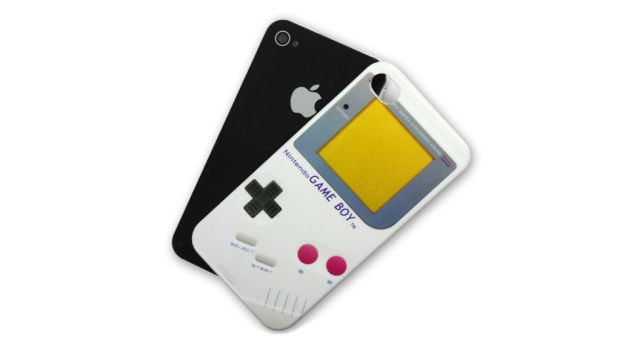
Honestly, I have played very few mobile games over the past five years. The explosion of mobile gaming has not had much of an effect on my personal gaming habits. But it has had an enormous impact on the business of video games.
Look at the schedule for any game development conference in the entire world right now and you'll find endless talks and panels on mobile game design and monetisation. The whole business is preoccupied with it, and for good reason: popular mobile games make an absurd amount of money. The unfortunate thing is that that money is largely generated by just a few breakout games, with everybody else left fighting over scraps. Micro-transactions and free-to-play might be dirty words to a lot of us, but they are immensely successful business models, and they have made their way into all types of game in the past five years.
In 2005, it was MMOs that were attracting all the investor attention, thanks to the enormous success of World of Warcraft. That burned out pretty quickly, as did Facebook gaming, which was going to be the next big thing for all of about 18 months. Mobile gaming may yet burn out too, but I don't think it's a fad. Phones and tablets define the gaming habits of millions of people. That genie won't go back in the bottle. I think it would be difficult to argue that mobile gaming was the new frontier for culturally interesting games, but it's defined the business of video games more than anything else in the last decade.
Steam transformed PC gaming
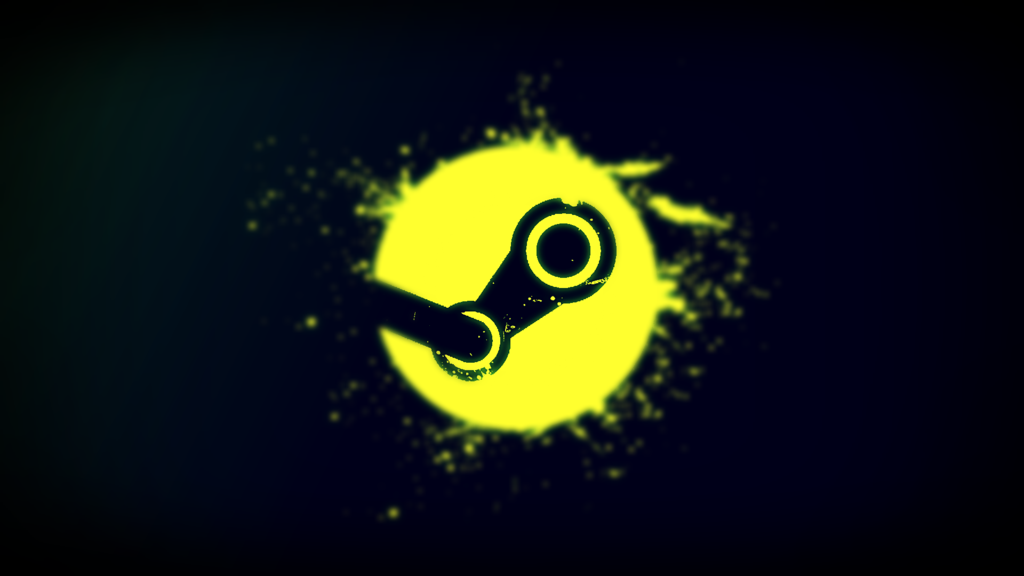
In 2005, people were genuinely talking about whether PC gaming might be dead, because boxed PC games weren't selling any more. It was an irritatingly persistent conversation, despite the fact that the PC is and always has been the world's most widespread and popular gaming platform.
What fixed this was digital distribution, and specifically Steam. Valve began to dominate the entire PC gaming market in what seemed like an extraordinarily short space of time. The lack of retail focus on PC gaming simply didn't matter anymore.
What launched in 2003 as a storefront for Valve's games gradually became the world's gateway to the entirety of PC gaming and completely revitalised the market in the process. We still don't know how much money Steam generates, how many units individual games sell through the service, because Valve keeps that information clutched tightly to its chest. But there is no doubt it is astronomical.
Valve and Steam have changed gaming in significant ways several times over the last decade, more recently with Early Access and Steam Greenlight. Its image, once infallible, is beginning to slip; you only need to look at the reaction to the introduction of paid mods earlier this year for proof of that. But it has already achieved an extraordinary amount.
The gap between players, developers and publishers has narrowed
I've touched on this before, but really this is at the heart of all the changes that have happened in games over the last 10 years. If I could sum all of it up in one point, it would be this.
The internet and social media have put players in direct contact with the people who make the games they love. It's also put them in contact with each other. We've created different communities around games, to a much greater extent than we could when I was growing up. Kickstarter has gone as far as turning players into investors.
Someone who wants to make a game and sell it to you no longer has to find someone to publish it, a shop to put it in a box, and a magazine to tell people about it. Theoretically they can now do all of that themselves. The power in video games has shifted away from the publishers, the money-men and the market and towards players and creators. With this has come an explosion in both the volume and creativity of games. It is fantastic. Games can be anything the want to be, and can find their audience. Many of us have believed this all along, but now the creators working in this medium have proven it.
In this creative environment, and with exciting technological developments like VR around the corner, I feel like the next decade is going to be just as interesting as the last. It's been a great 10 years in video games. I hope I'm still here in another 10.
This story originally appeared on Kotaku UK. Republished with permission.
Masthead image, modification of Pop Chart Lab gaming evolution poster.
